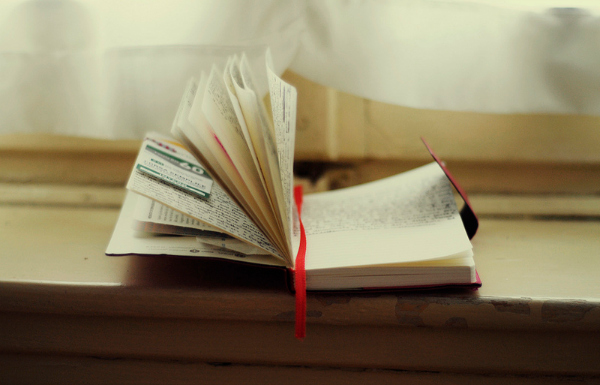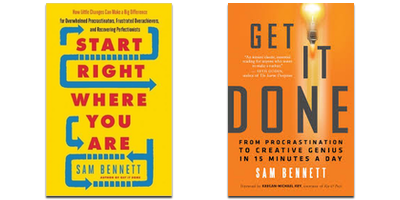
Asking yourself the question “Where will I think to look for this?” might be the single greatest organizational step you can take.
Asking yourself this question puts you in a state of awareness about your organizational style and creates an automatic mnemonic so you are even more likely to remember later on.
If I can imagine that the last time I put away a bottle of vanilla extract I thought, “Well, I’ll probably think to look for this with the rest of the baking stuff or maybe with the spices,” and then I put it with the rest of the baking stuff, well, I’ve got a better than fifty fifty chance of finding it right away the next time I need vanilla.
Certainly much higher than if I just jam it on a shelf somewhere where it eventually gets shoved to the back (because it’s a seldom-used item) and where I’ll never find it because I’m not even sure I have any to begin with because I don’t remember the last time I put it away.
This leads to buying more vanilla extract, which, if you use the pure extract (and you really should; the imitation stuff is terrible) is pretty darn expensive.
So why buy two when one, well placed, will do?
Again, the question is not, “Where should this go?” The question is, “Where, given my actual life, would I think something like this might end up?”
This is also a great question to ask yourself in parking garages, although there it sounds more like, “How will I remember which spot this is when I return?”
A good system is practical, realistic, easy, and even fun.
A bad system is impractical, unrealistic, hard, and a bummer.
You, your stuff, your space, and your art all deserve great systems.

You are a genius, and you have a lot of really good ideas every day.
But chances are, you’re not writing them down. And the life span of an unrecorded idea is. . . well, it’s pretty short.
So find a system that works for you, and use it every day. I like writing my ideas on index cards because they are cheap and cheerful and easy to carry.
But there are lots of other methods:
• Carry a little notebook.
• Use a voice memo app on your phone.
• Create an area in your datebook or journal for ideas.
• Find a note-taking app that you love to use.
• Call yourself and leave a message.
• Write on Post-its and stick them in places where you’ll see
them.
• Use a coupon-carrier type envelope in which you can file your little scraps of paper
If you’re not a write-things-down kind of person, you might want to try tapping your wrist, forehead, or sternum as you repeat the idea out loud several times, or you might try turning your idea into a little song you can sing to yourself. These kinds of mnemonics work beautifully for some people.
Then you need to create a home for these great ideas.
(Here is my most succinct organizational tip: everything needs the rightsized home.)
For your random ideas or for the ones you are not moving forward on, I suggest creating a file, folder, or envelope, and labeling it “Genius.” At the end of each day, put your ideas in there.
They will nest and grow and, eventually, turn into something fabulous.
Index cards helped me write this book. When I first had the idea for this book, I thought it was great, but I also got immediately stuck because I wasn’t sure what format the book should be in. Should it be a workbook? A thought-for-the-day book? A six-week plan with prescriptive exercises for each day?
I knew I was falling into the trap of believing that I needed to have it all perfect inside my head before I moved forward, so I decided to let this book tell me what it wanted to be. For several weeks, every time I had an idea for something that I thought should be in the book, I wrote it down on an index card and put it in a “My Brilliant Book” manila envelope.
After about six weeks of this, I spread all the index cards out on my dining room table and began to sort them. I played around with a few different ways of organizing the ideas and finally ended up with a structure I really liked.
The fun part came when I started writing in earnest. Whenever I got stuck or didn’t know what part of the book to work on, I would just reach my hand into the envelope and write about the idea on whatever index card I pulled out.
I love letting chance and fate have a hand in my daily writing practice.
What’s your favorite “Idea Catcher” ?
photo credit: Silvia Sala via photopin cc



